The endgame in Path of Exile 2 is vast, complex, and designed to appeal to every kind of player. No matter if you are a fan of intense and challenging combat, intricate crafting, or exploring the unknown, there is something here for you! With a mix between the Atlas of Worlds, challenging Trials, and Pinnacle Boss fights, PoE 2’s endgame offers many different activities you can engage in and try to master. So let’s go over all the details of what awaits you!
Atlas of Worlds
The Atlas of World is the heart of the endgame in Path of Exile 2 and presents a massive network of interconnected maps. Each map has unique enemies, mechanics, and rewards, creating a sort of ever-evolving experience for players. The Atlas becomes accessible after completing Act 3 on Cruel Difficulty.
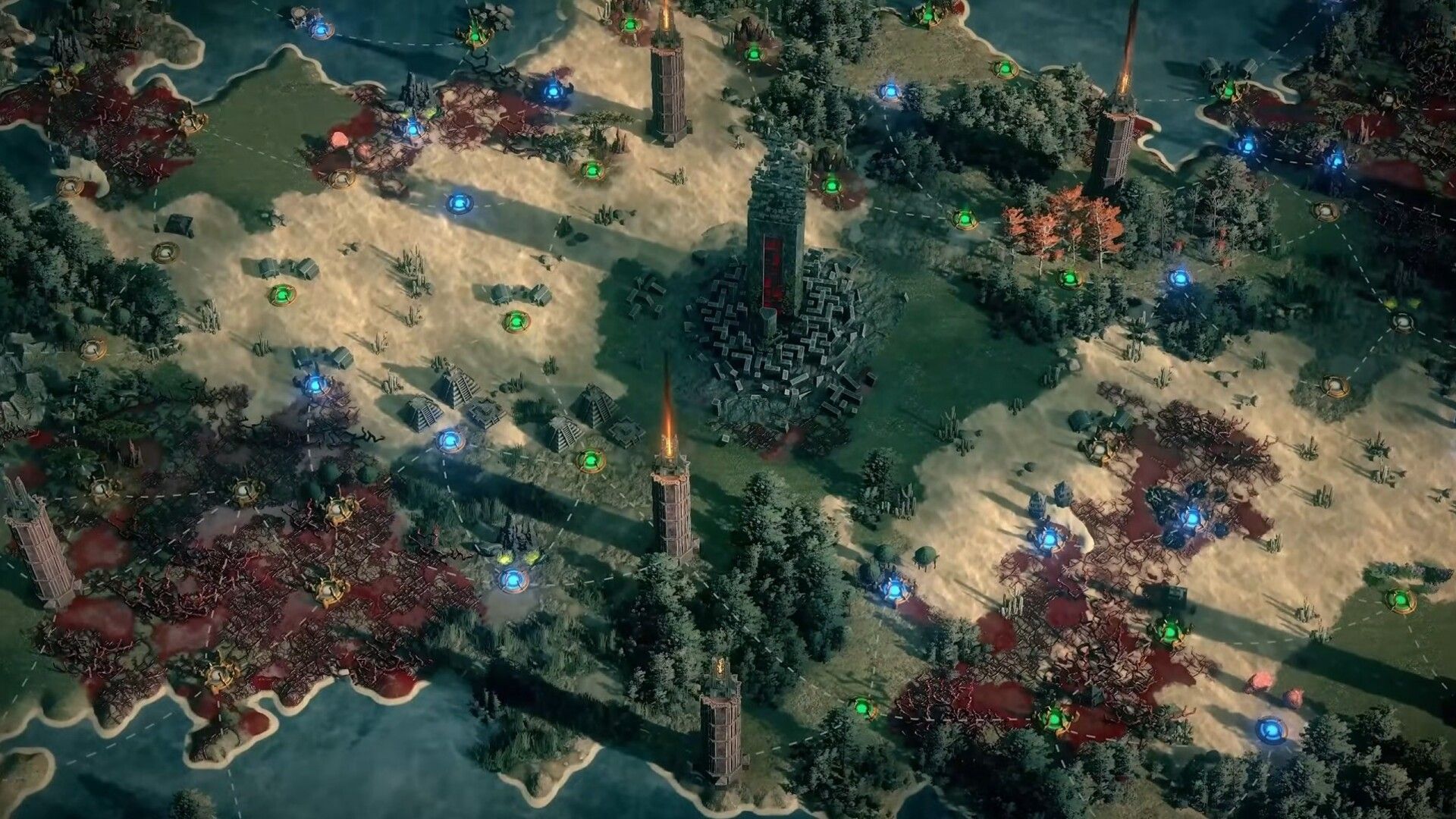
Core Features
- Maps: These are the nodes on the Atlas, each offering a mix of challenges and loot.
- Waystones: Consumable items that are required to enter atlas maps. Waystones can be crafted to include modifiers that increase both the difficulty and the rewards of the maps.
- Higher-Tier Maps: Combine Waystones or use specific crafting mechanics to unlock rare and unique map tiers.
- Atlas Passive Tree: The Atlas Tree lets you customize your Atlas experience by investing points to enhance specific mechanics, like Breaches, Rituals, or boss encounters.
For a detailed breakdown of the Atlas, check out our dedicated Atlas of Worlds guide.
Atlas Events: Specialized Encounters
Within the Atlas, you will come across special mechanics that add variety and rewards to your maps, such as:
Breach

What It Is: Breaches are timed portals that spawn hordes of enemies. Clear them quickly to keep the portal open and to increase rewards.
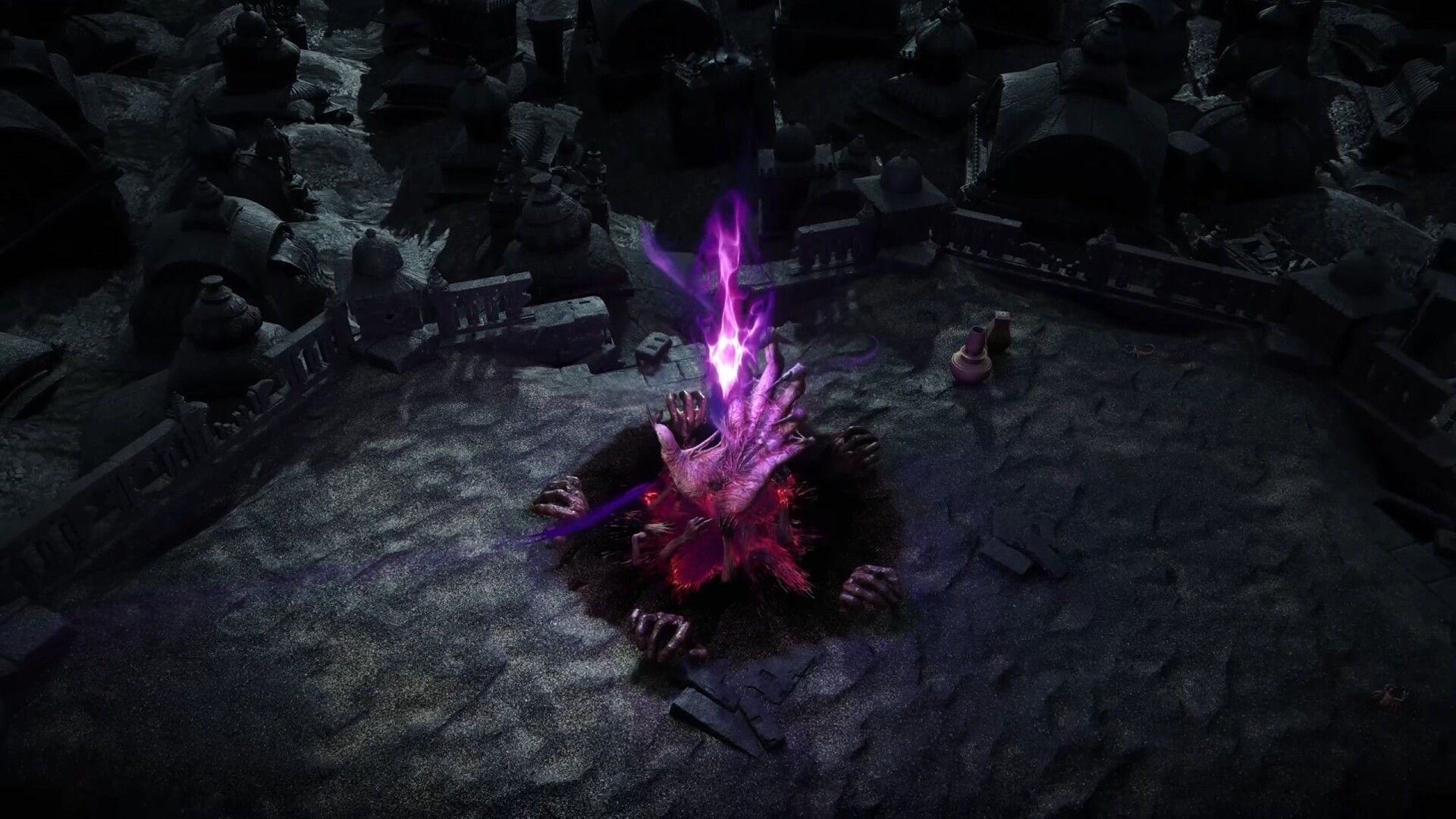
Rewards:
- Catalysts: Improve the quality of rings and amulets.
- Breach Rings: Powerful, breach-exclusive items that can be further improved with Catalysts.
- Breach Tablets: These are used in Lost Towers to add more Breaches to surrounding maps.
- Breach Splinters: Combine 300 to craft a Breachstone, granting access to the pinnacle boss, Xesht, via the Twisted Domains Realmgate.
Breach events also offer additional interactions and loot through the Atlas passive tree. For example:
- Grasping Hands: Increases the number of Clasped Hands as well as granting a chance for each of them to be guarded by a pack of additional Magic Monsters.
Breach Pinnacle Boss: Xesht, We Who Are One, features multiple difficulty tiers. Craft Breachstones and use them in the Realmgate to face this challenge.
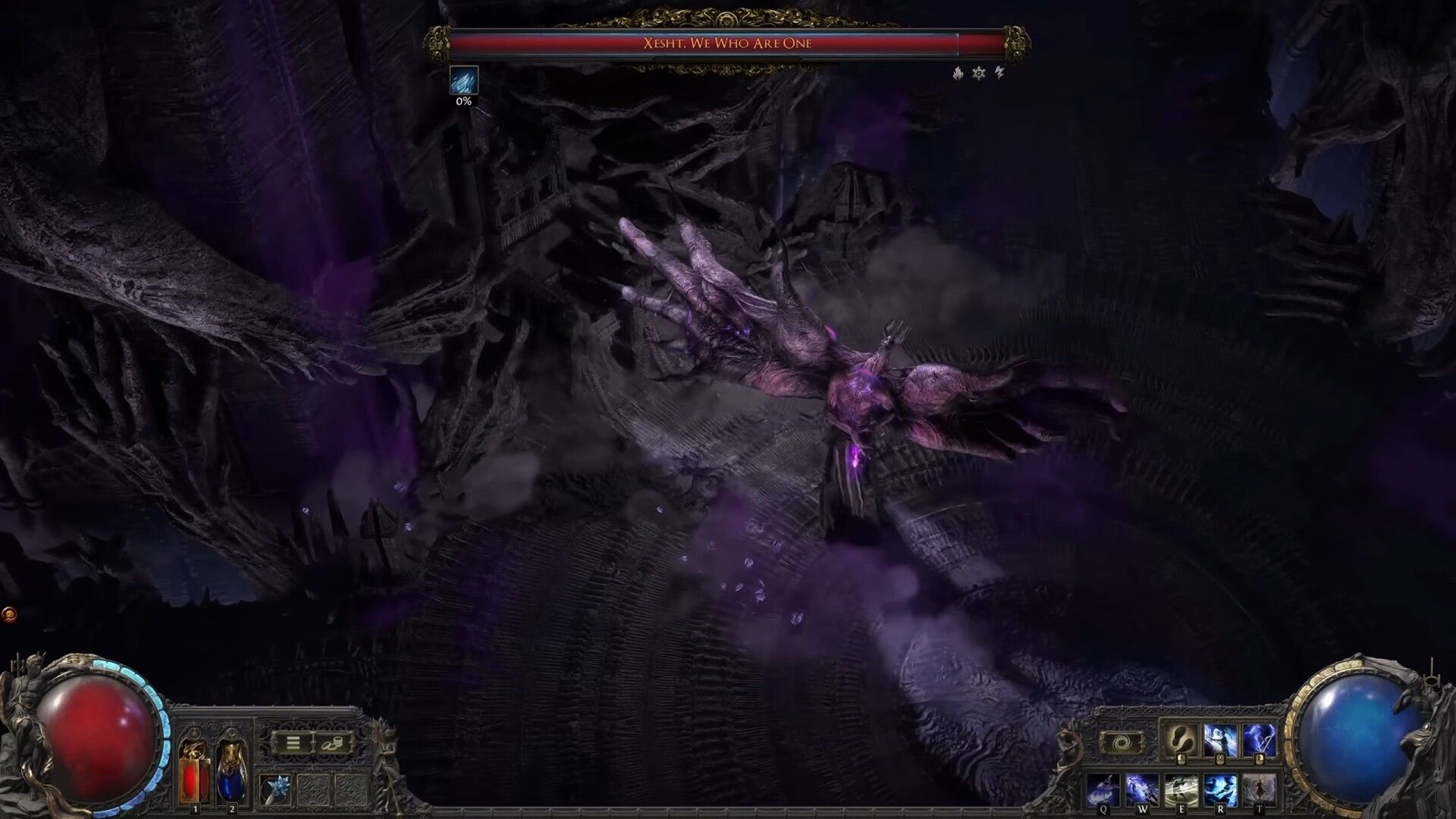
Ritual

What It Is: Rituals involve sacrificing enemies at altars to earn Tribute, which you can exchange in the Favour Shop for exclusive rewards.

Rewards:
- Tributes: A currency for purchasing items in the Favour Shop.
- Omens: Unique crafting items found exclusively in Rituals.
- Ritual Tablets: Add more Ritual nodes to your maps via Lost Towers.
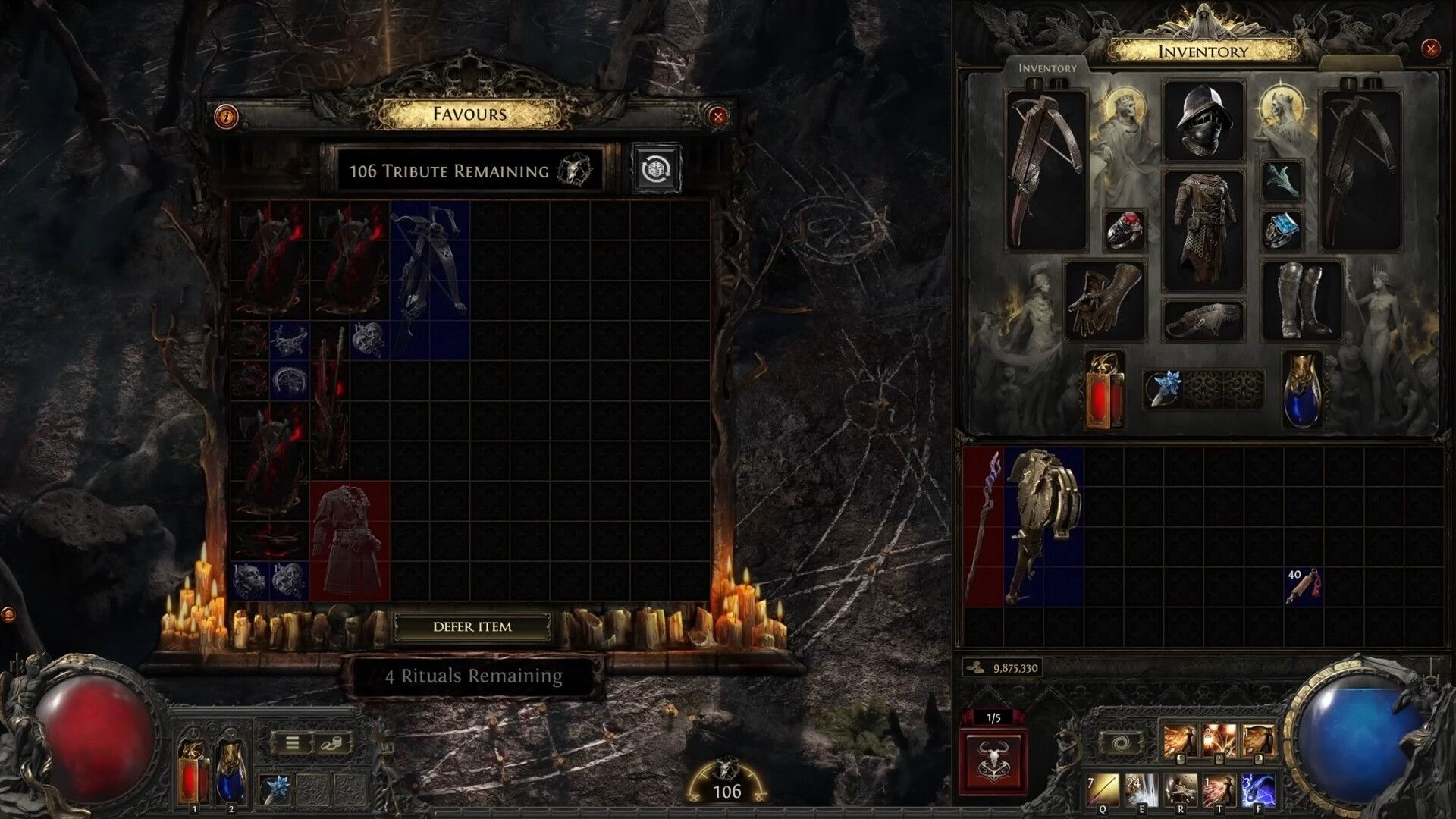
Ritual Pinnacle Boss: Offer a specific map fragment to the Realmgate to summon The King in the Mists at the Crux of Nothingness.
Delirium
What It Is: A timed event that engulfs maps in mist, spawning empowered enemies. Enter through Delirium Mirrors and defeat waves of enemies to fill the reward bar.
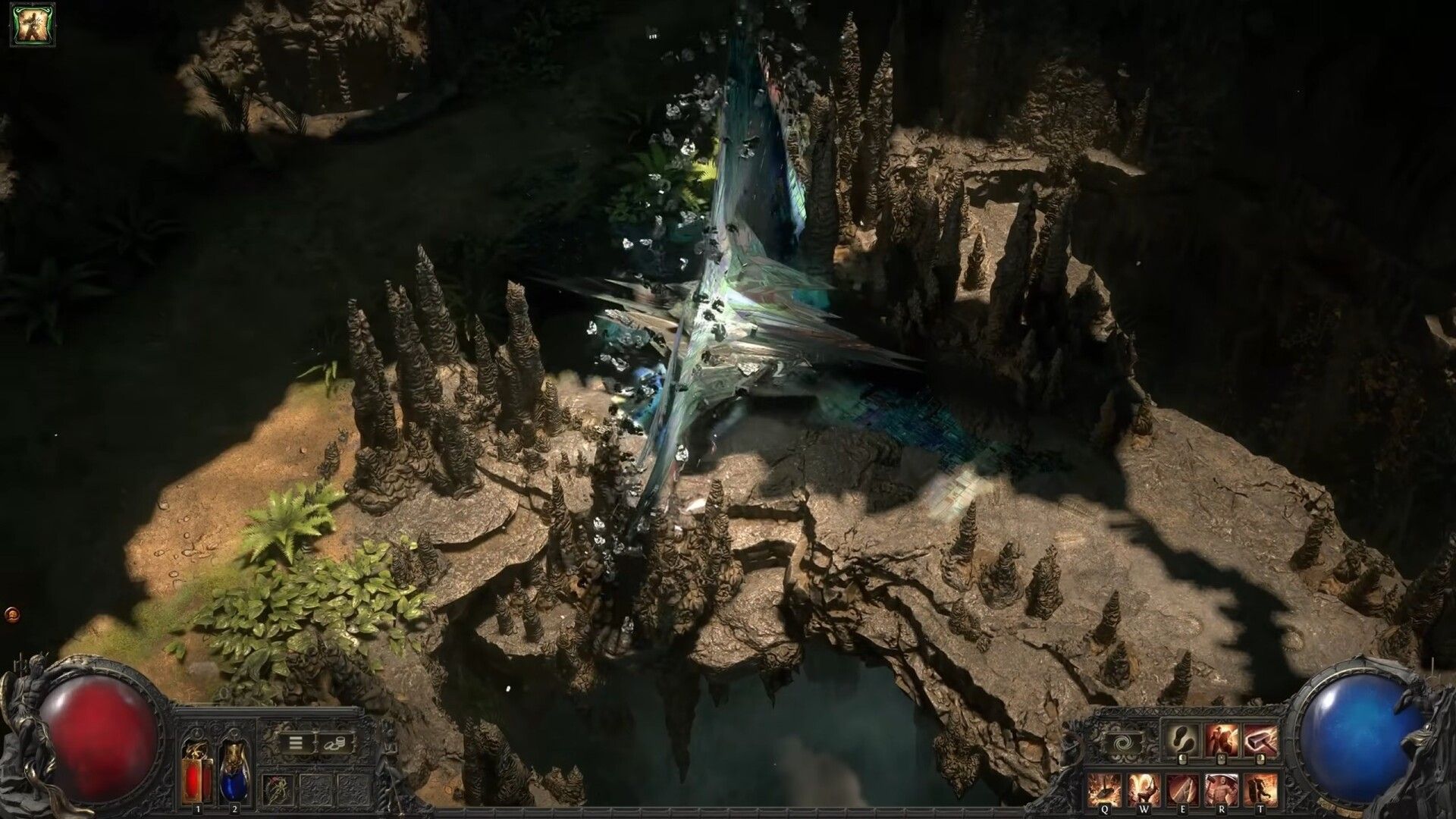
Rewards:
- Distilled Emotions: Apply passive effects to amulets or add modifiers to Waystones.
- Simulacrum Splinters: Combine these to create a Simulacrum, where you will face increasingly difficult waves of enemies.
- Delirium Tablets: Use these in Towers to add Delirium encounters to nearby maps.
Simulacrum: Test your limits against 15 waves of enemies, which can end in potential boss encounters.
Expedition
What It Is: Assist Kalguuran settlers by strategically placing explosives to uncover artifacts and treasures. Fight off waves of enemies to secure your loot.
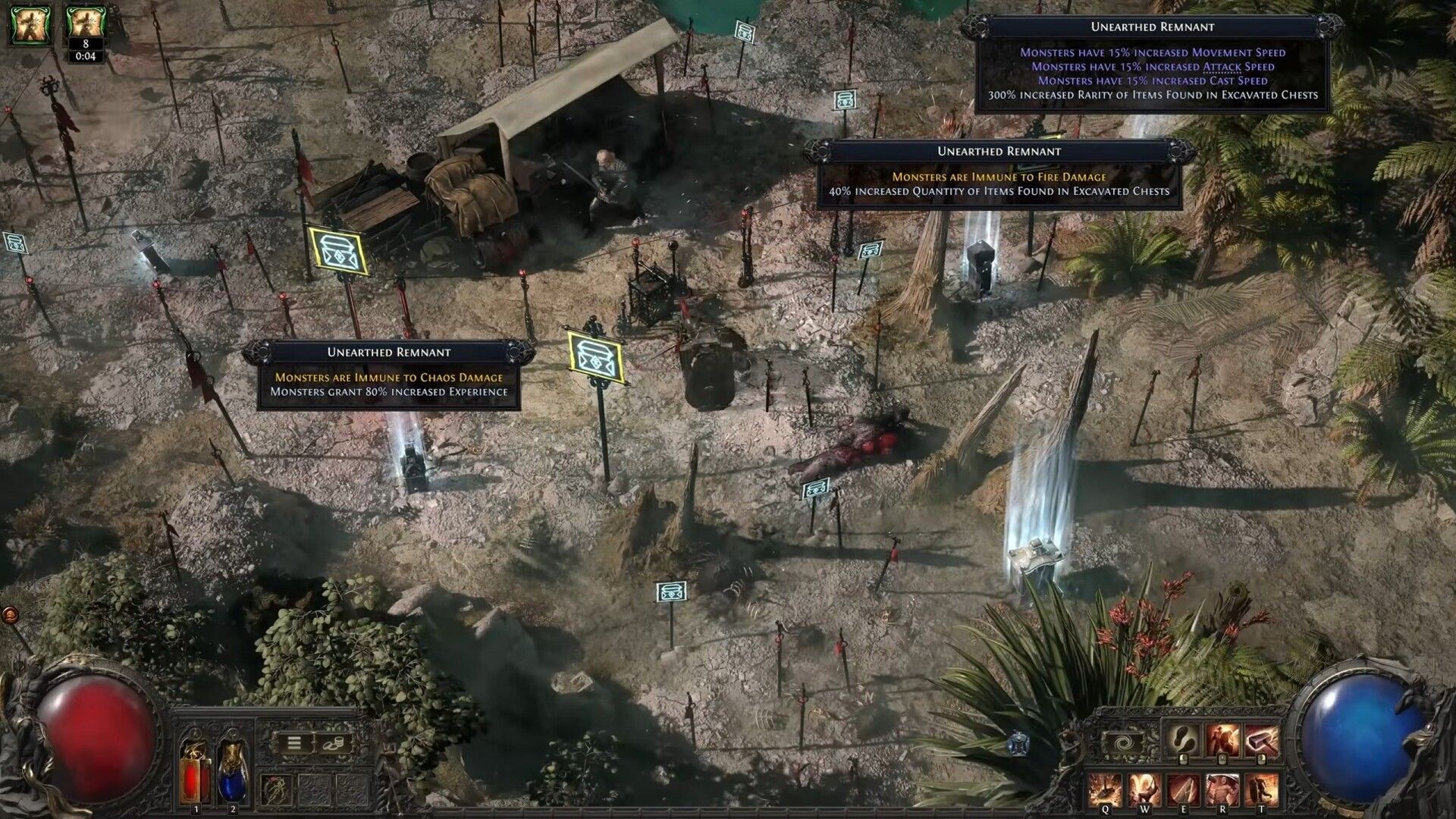
Rewards:
- Verisium Artifacts: Trade with Kalguuran vendors for unique rewards.
- Logbooks: Special items that unlock improved Expeditions with better loot and a chance to encounter Olroth, the Expedition Pinnacle Boss.
- Unique Items: Powerful, exclusive gear.
Trials of Endurance and Chaos
Outside of the Atlas, Path of Exile 2 also features Trials, which are challenging gauntlets that test your skill and adaptability.
Trial of Sekhema
- Location: Act 2, Vastiri Plains.
- Objective: You have to navigate through rooms with distinct challenges, including defeating waves of enemies, evading traps, and more. It is important to note, that you have to manage ‘Honor’ instead of health. Taking damage depletes Honor, and running out of it will result in trial failure!
- Rewards:
- Jewels: Powerful items socketed into your passive tree.
- Unique Relics: Valuable, game-changing artifacts.
Trial of Chaos
- Location: Act 3, Temple of Chaos.
- Objective: Choose tribulations before each room to modify challenges and rewards. Survive multiple rooms and defeat randomized bosses.
- Rewards:
- Vaal Orbs: Used to corrupt items, with both high risks and high rewards.
- Soul Cores: Rare, powerful modifiers for gear.
Pinnacle Bosses
Pinnacle bosses are the highest challenge you can aim for in Path of Exile 2’s endgame, offering the greatest rewards for the toughest encounters. There are seven different endgame systems, each with its own type of enemies, rewards, and Pinnacle Bosses, such as:
Xesht, We Who Are One: Accessed via Breachstones.
The King in the Mists: Found in the Crux of Nothingness through Rituals.
Olroth, Undead Commander: Encountered during Expeditions.
The Burning Monolith: The pinnacle of the Atlas, requiring three keys from faction leaders to enter.
Tip: Invest in Atlas Passives related to pinnacle bosses if you want to increase respective rewards and streamline your path to these encounters.
Realm Gates
Realm Gates are special portals located within the Atlas, through which you can enter unique zones and Pinnacle Boss encounters.
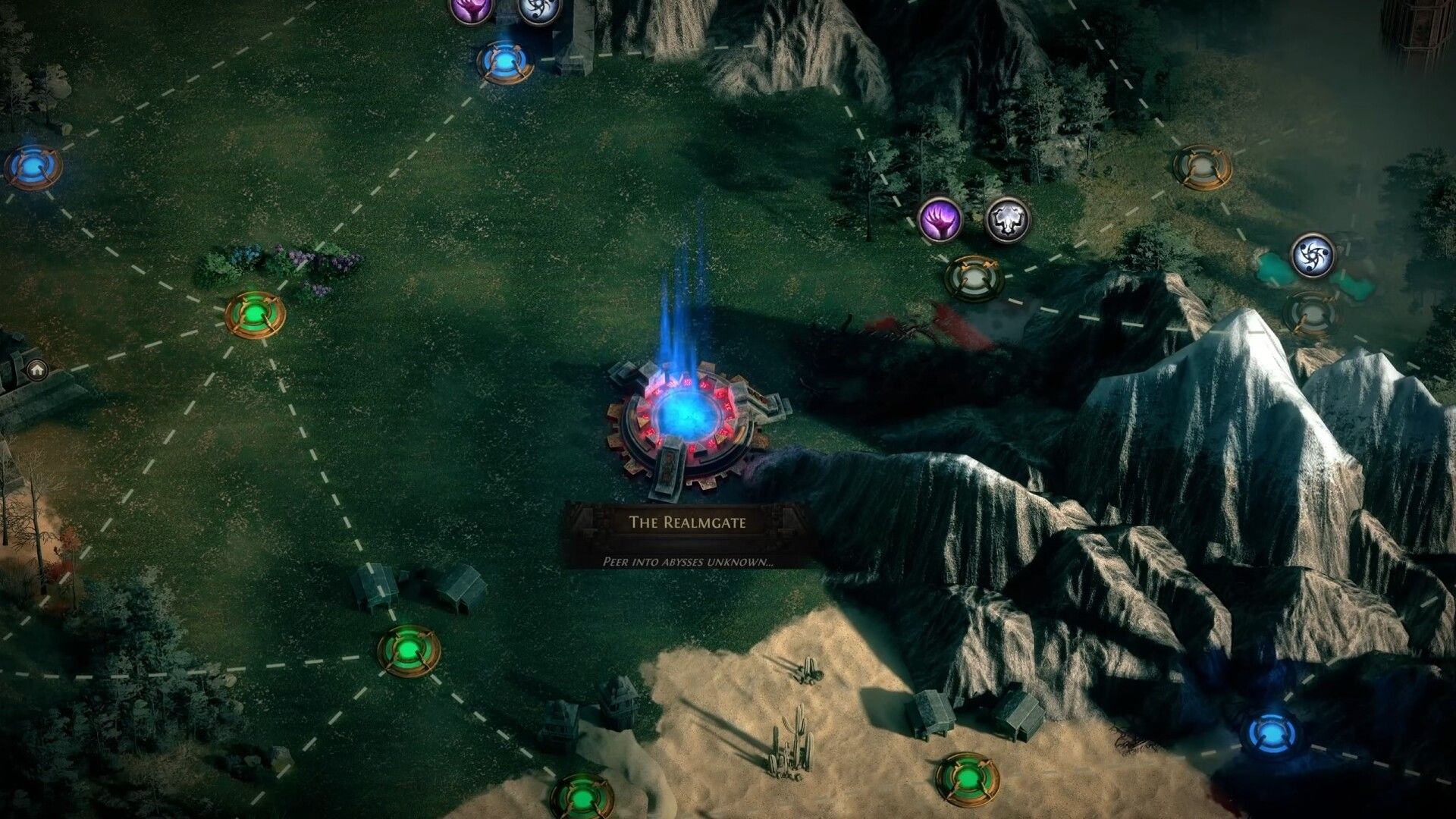
Keep in mind, though, that accessing pinnacle bosses like The Burning Monolith or Twisted Domains requires dedication and preparation. Start by farming key fragments like Breachstones or map-specific items, and make sure your build can handle the increasing difficulty of these fights!
How to Unlock Realm Gates:
You have to complete 3 acts on Cruel difficulty in order to unlock the Atlas and its associated Realm Gates. Afterward, you can access the gates by using special items to open portals to respective encounters:

- Breachstones: Open portals to Twisted Domains.
- Simulacrums: Allow access to Delirium boss fights.
- Crux of Nothingness Map Fragment: Summons the King in the Mists.
Rewards:
Pinnacle Bosses accessed through Realm Gates offer exclusive items and Atlas Passive Points!
The Burning Monolith
The Burning Monolith is the most challenging zone in the Atlas, featuring a complex maze, dangerous enemies, and the ultimate Pinnacle Boss.
Access Requirements:
You have to gather three keys from enemy faction leaders and their lieutenants. Factions dynamically move across the Atlas, so failing to defeat them means tracking them down again.
Navigating the Maze of Challenges:
The maze is complex and filled with high-level monsters and traps through which you have to make your way before reaching the Pinnacle Boss.
Faction Battles:
Compete with enemy factions attempting to breach the Monolith themselves.
Pinnacle Rewards:
Successfully defeating the boss rewards unique items and special Atlas Passive Points for the Burning Monolith section of the tree.
Endgame Customization
The Atlas Passive Tree allows you to shape your endgame experience. When allocating points in the Atlas Passive Tree, consider your build’s strengths. For example, summoners may benefit more from nodes increasing monster density, while ranged builds might benefit more from focusing on loot-heavy mechanics like Breaches. So invest in nodes that make sense for your build.
Use Precursor Tablets in Towers to further amplify rewards in surrounding maps.
Precursor Tablets
Precursor Tablets are special items in Path of Exile 2 that let you customize and improve your maps. You will find them as you explore the Atlas, and they can be slotted into Precursor Towers to add specific mechanics like Breach, Delirium, Expedition, or Ritual encounters to nearby maps. This makes the maps more challenging but also more rewarding, giving you a way to shape your mapping experience to what you are working towards.
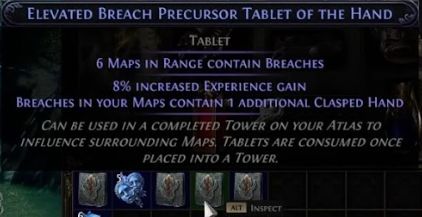
How to Obtain and Use Precursor Tablets
- Drops: Precursor Tablets are dropped during respective encounters, such as Breaches, Rituals, Delirium, and Expeditions. For example, Breach monsters may drop Breach Precursor Tablets.
- Slotting Tablets: Once you have a tablet, head to a Precursor Tower on your Atlas. Slot the tablet into the tower to modify the nearby maps with the associated mechanic (e.g., Breach encounters for Breach Tablets).
- Crafting and Upgrading: Tablets can also be crafted or upgraded so that you can increase their effectiveness or add additional bonuses to the surrounding maps.
Why Use Precursor Tablets?
Slotting specific tablets helps you to customize your mapping session to be more in line with your goals and what you are working towards (e.g. farming Breach splinters, Ritual tributes, Delirium rewards, etc.). Furthermore, improved encounters often include better loot drops, giving you more value for the time you spend as you progress through the map.
Corruption Mechanics
Corruption in Path of Exile 2 allows you to push the limits of your gear with unique modifiers, but at a cost.
- Corrupting Items: Use Vaal Orbs or Corruption Altars to modify items. Possible outcomes include adding implicit modifiers, rerolling stats, or altering sockets.
- Irreversible Changes: Once corrupted, items can no longer be modified by traditional crafting methods.
- Sources:
- Vaal Orbs: Consumable items used for corruption.
- Corruption Altars: Found in areas like Jiquani’s Sanctum, offering unique outcomes for corruption.
Corruption is a gamble; it can greatly improve an item’s power or make it less effective. Corruption Mechanics are a high-risk, high-reward crafting strategy for players looking to push their gear to the limit. While it is understandable that everyone wants to create or adjust their equipment with powerful modifiers, corruption is permanent and can result in negative outcomes. Use tools like Vaal Orbs and Corruption Altars only on items you are willing to risk!
If you are interested in getting a more detailed look into specific mechanics, please check out the other guides on our Path of Exile 2 guides homepage.
 Mercenary
Mercenary Monk
Monk Ranger
Ranger Sorceress
Sorceress Warrior
Warrior Witch
Witch